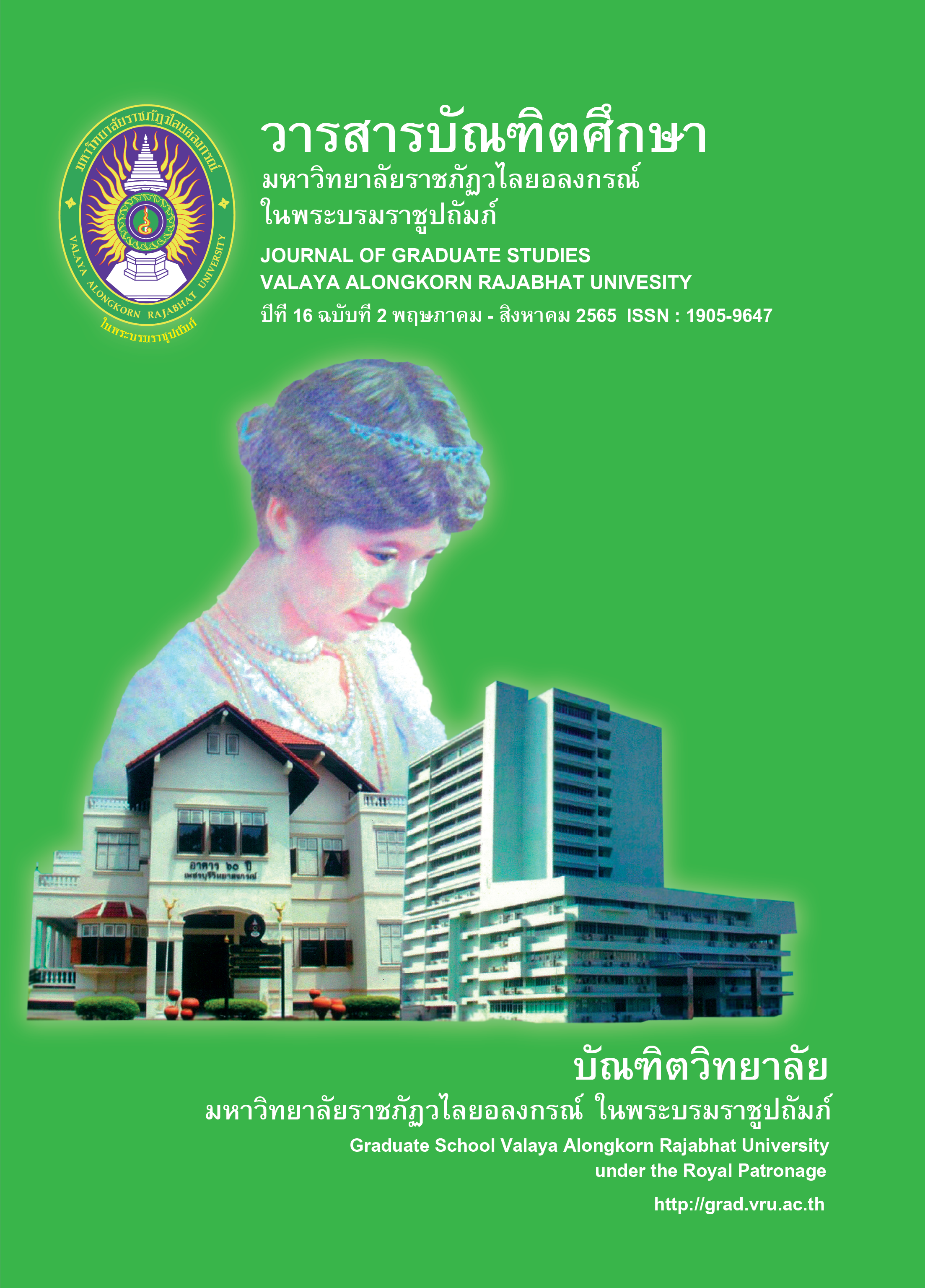A DEVELOPMENT OF LEARNING MANAGEMENT PROCESS USING MATHEMATICS STORIES BASED ON VYGOTSKY’S THEORY WITH SCAFFOLDING TO ENHANCE MATHEMATICS CONCEPTS OF LOW ACHIEVEMENT STUDENTS
Main Article Content
Abstract
The objectives of this research were to 1) study the context, needs, in enhancing mathematics concepts of students with academic achievement, 2) develop a learning management process using mathematics stories based on Vygotsky’s theory that with scaffolding to enhance mathematics concepts, and 3) evaluate the use of the learning management process developed. The samples wear of 120 Mathayom Suksa 3 students is obtained from cluster random sampling. Data analysis using protocol analysis (Task Analysis) and analytical lectures (Analytic Description) from the mathematical concept test. Statistics used in the research were frequency, percentage, mean, standard deviation, and Independent t-test, Dependent t-test.
The research results showed that: 1) The study of context, needs, in enhancing mathematical concepts of students with low achievement were concepts in, content of number and operation, measurements, and geometry. 2) Learning management process using mathematics stories based on Vygotsky’s learning with scaffolding to enhance mathematics concepts of students with low achievement, consisting of 5 steps and 3) mathematics concepts of students learning by learning management process using mathematics stories based on Vygotsky’s learning theory with scaffolding and students learning by the traditional method were different with statistical significance at the level of .05.
Article Details

This work is licensed under a Creative Commons Attribution-NonCommercial-NoDerivatives 4.0 International License.
บทความทุกเรื่องได้รับการตรวจความถูกต้องทางวิชาการโดยผู้ทรงคุณวุฒิ ทรรศนะและข้อคิดเห็นในบทความ Journal of Global of Perspectives in Humanities and Social Sciences (J-GPHSS) มิใช่เป็นทรรศนะและความคิดของผู้จัดทำจึงมิใช่ความรับผิดชอบของบัณฑิตวิทยาลัย มหาวิทยาลัยราชภัฏวไลยอลงกรณ์ ในพระบรมราชูปถัมภ์ กองบรรณาธิการไม่สงวนสิทธิ์การคัดลอก แต่ให้อ้างอิงแหล่งที่มา
References
Chaicharoen, S. and Kanjak, I. (2006). theknōlōyī kānsưksā: čhāk theknōlōyī thāithō̜t māsū theknōlōyī thāng panyā. [Educational Technology: From Technology Transfer to Intellectual Technology]. Journal of Cognitive Technology, 1(1). 3-7.
Curry, A., & Kadasah, N. (2003). Focusing on Key Elements of TQM-evaluation for Sustainability. The TQM Magazine. 14(4), 207-216.
Gagne, R. M. (1970). The Conditions of Learning (4th Ed.). New York: Holt Rinehart and Winston Inc.
Hemnak, N. (2013). patčhai thī song phon tō̜ phon samrit thāngkān rīan khō̜ng nakrīan chan matthayommasưksā tō̜n ton sangkat samnakngān khēt phư̄nthī kānsưksā prathom sưksā čhangwat prāčhīn burī [Factors Affective Achievement of Students in Secondary Levey under the Office of Prachinburi Primary Educational Service]. Master of Education Thesis. Burapha University.
Jackman, W. D. (1996). Fostering Metaphorical Thinking through Children’s Literature. Retrieved from http://cdnet2.car.chula.ac.th/plweb-cgi/hwwstd.cgi.
Joyce, B., Weil, M., & Calhoun, E. (2004). Models of Teaching. (7th ed.). Boston: Allyn and Bacon.
Vygotsky, L. S. (1981). Thought and Language. Edited and Translated by Eugenia Hanfmann and Gertrude Vankar. Cambridge, the M. I. T. Press, Fifteenth Printing Edition.


